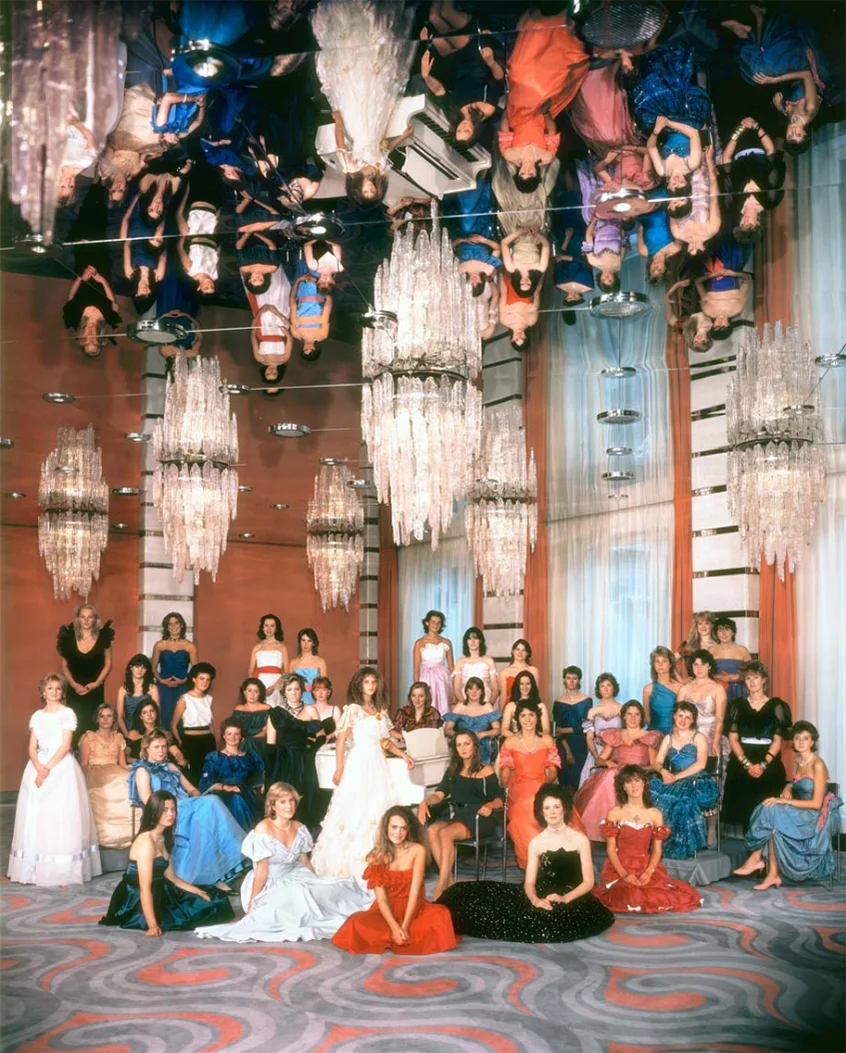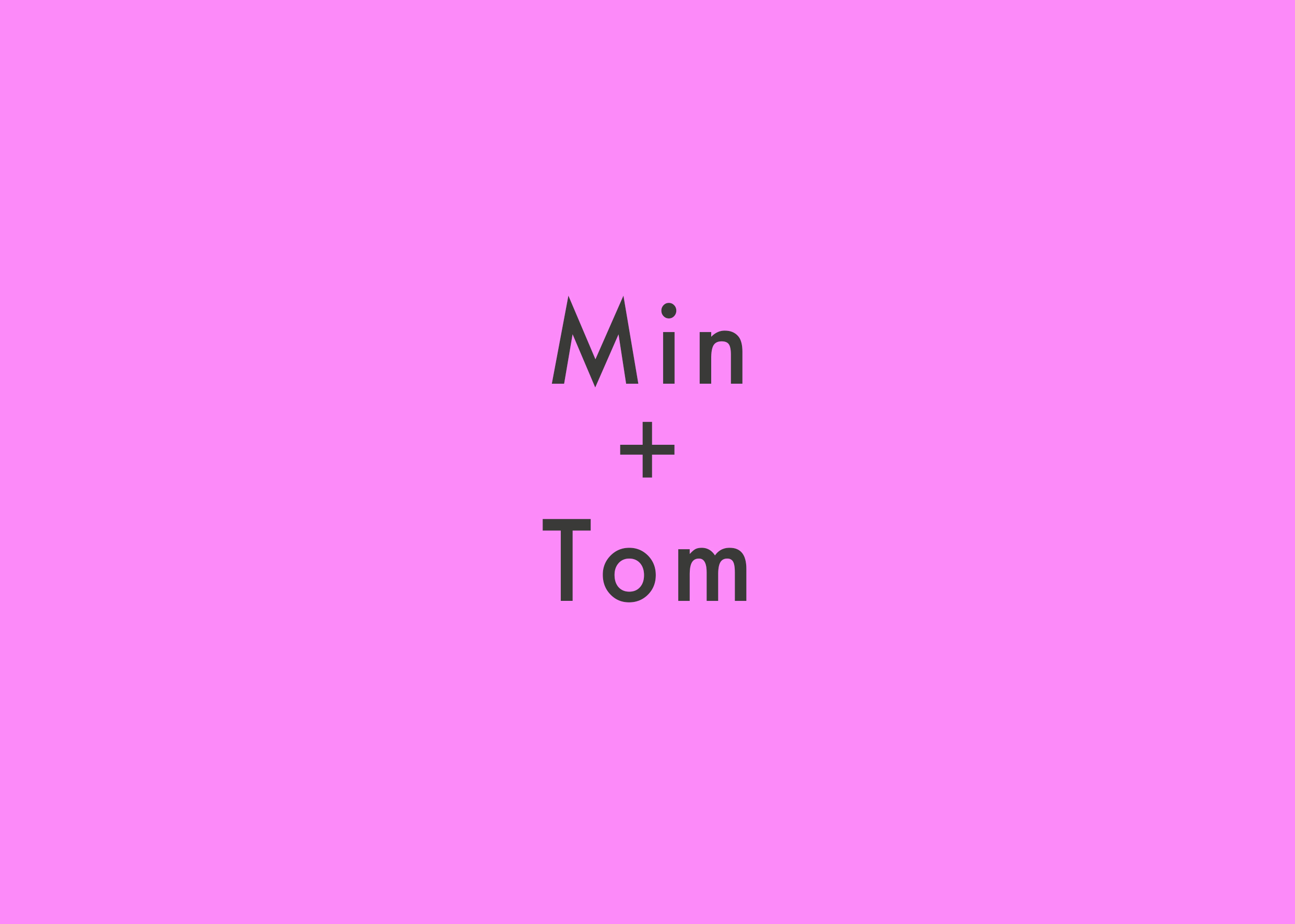You Can Sit With Us

Photography by Neal Slavin
Being ostracized is a familiar narrative we've grown up with. We’ve seen it in our personal lives and in films. Mean Girls, Heathers, Dazed and Confused, Elephant, Napoleon Dynamite — there's always someone made to feel left out. I feel like I've watched scenes in American school cafeterias, where the ringleader doesn't let someone sit with them a million times over. They’re excluded because they don't fit the popular person's aesthetic or social code.
I was lucky at school, thanks to great friends, being good at sport, and wearing the right band T-shirts, I managed to live through those years fairly unscathed. There were definitely a few bitchy notes passed around and friend fallouts, but I got invited to parties, picked for school teams, asked out by boys, and rarely felt like an outsider. But now, I do. My application to motherhood has been constantly rejected, and I'm beginning to feel like that kid paralysed in the school cafeteria, holding my tray, looking for a seat, and feeling like there isn’t a table for me. I don't belong on the singles' table, or the married table, or the pregnant table, or baby-yoga table, or the career mums’ table, or the kid's birthday party table. As much as all of my friends who sit at the heads of these tables invite me to sit with them, and I do, I know I don't completely fit in. For the first time, I know what it's like to feel like an outsider. I'm THAT kid, in an adult's body.
As a freelancer, I find myself in coffee shops when the NCT gangs are meeting up, all Bugaboo pushchair takeover and breastfeeding. Amidst the sea of mums, I feel a distinct lack of something — I've forgotten to bring my newborn to the coffee shop! Then I realise I don't have a newborn. Just another reminder when I'm getting a cup of tea.
I'm like a magpie spotting the 'baby on board' badges pinned on to any coat from Primark to Acne. That badge always gets me. If you're not from London, you may not know about the badge that Transport For London gives pregnant women. Like when you turned five, ten, or any brag-worthy age and got to wear a badge to tell the world that it was your birthday. When you're expecting a baby in London, you get to wear a badge for nine whole months to tell everyone you're pregnant. And when you see a woman with the badge, you stand up for her on public transport (it's usually another woman to leap from her seat first). And don't get me wrong, I completely understand the logic of wearing the badge; it's a rugby scrum on the tube in peak hours, it's important to protect that bump. She's probably got backache, hip ache, sore boobs, needs a pee, and would quite like a foot massage from the thought of going to work, let alone from working all day. But that badge. Every time I see the words 'baby on board' I read 'I'm pregnant and you're not,' followed by the middle finger. It's had such an effect on me, that I never want to wear one when I finally am pregnant — or, I'll do the exact opposite and adorn a coat with hundreds of them and just swan around like the pearly queen of pregnancy.
“The 'I'm pregnant and you're not' badge"
A friend of mine who struggled to get pregnant with her second child said she loved wearing her jumper emblazoned with the word MOTHER when she had her firstborn. Like a badge of honour. She loved her new status, and felt proud to join the cool mum crew. But when she found herself grieving over two miscarriages, her awareness to every baby bump and badge and MOTHER jumper out there became so heightened. That, coupled with her sister’s struggles to conceive, made her feel uncomfortable about wearing said jumper. She felt like it was showing off, a smack in the face to those who weren't a mother yet. So the jumper found itself in the bag to Oxfam.
Empathy is like a currency: the more adversity you endure, the more empathy you earn. And my boyfriend and I have got the empathy gold card. It's the friends who have been through miscarriages, failed IVF, and negative, negative, negative pregnancy tests, that know the right things to say. They're the ones who know only too well that motherhood is a club that doesn't accept all applicants.
“When two or more are gathered together, you can build your own table”
In my early 30s an unspoken division was created between my friends. Those who developed a new-found humility from a failed longterm relationship, and those who — from the outside — had their life working out exactly as planned. They were walking up the aisle right on schedule. If I'm honest, I struggle to connect with people who got married by 30 in a marquee in the country, had their three kids perfectly spaced out with a breeze, those who have never been made redundant, who have bought their second home, and whose kids go to some eye-watering expensive school. That life sounds rather lovely. And it's the life I aspired to growing up. But when it all goes to plan, you miss the humility that only comes from wrestling your way through career, love life, and fertility disappointments. If I were to sit at the table of everything-working-out-as-planned, it wouldn't feel real, I wouldn’t know what conversations to have. I don’t even really know anyone sitting on that table. So I'd rather stand — for the pregnant women (with their annoying badges), and with the people who don't fit into the mould of perceived perfection. The thought of that life feels so alien to me.
When my boyfriend and I are hit by another fertility blow, my folks and my best friends and my sister are there for me. And so are the women I barely know, who I’ve met through friends. Women I've interviewed or spoken to for advice about this clinic or that process. And these conversations have truly bolstered me. These are the women who have lived through similar experiences, so they really get it. It's this shared adversity that forges such a strong, supportive connection. It's like having a fertility mentor — the way my friend who's in recovery for alcohol has a sponsor. I see how much she gains from having someone in her life who has trodden the path before her. Who can tell her what dips to watch out for along the road, and what's coming up ahead. I think people who are navigating an alternative path to parenthood would benefit massively from having a mentor, a buddy who can help them map read. Someone who's been there, who knows what it's like to go through the two-week wait, to choose a sperm donor, choose an egg donor, to find a clinic abroad, find a surrogate, to know how the adoption process works. Because it’s rubbish feeling alone. We want to belong to something, we all know that we're stronger together. Like Neal Slavin’s photography illustrates, when two or more are gathered together, you can build your own table — create your own crew. Sometimes we just need someone to help us feel less like the odd one out, less like the new kid holding our tray in the cafeteria. Someone who can wave us over and say, "you can sit with us.”
I’ve not joined this myself, like everything fertility related you have to pay to sign up. The concept sounds good though, and if you need support with finding out about clinics and want to connect with people going through a similar fertility slog to you, it could be your thing. https://myfertilitybuddy.com










